#Interdisciplinary research
Explore tagged Tumblr posts
Text

The Evolving Story of Us: Science, Consciousness, and the Quest for a Deeper Understanding of Reality
The confluence of science, humanities, and consciousness presents a rich tapestry that challenges and enriches our understanding of human experience. Jeffrey Kripal’s introduction of the “Super Story” concept embodies a compelling endeavor to integrate the vast expanse of human experience, including paranormal phenomena, into a cohesive, cosmic narrative. This approach seeks to transcend the limitations of physicalism, acknowledging the intricate interplay between material and non-material aspects of reality. By situating paranormal events within a broader, evolving story, Kripal opens up new avenues for understanding these phenomena not as anomalies, but as integral components of the universe’s narrative, thereby underscoring the potential for a more inclusive, interdisciplinary framework.
The critique of reductionism highlights the inadequacy of assuming that complex phenomena can be fully elucidated by dissecting them into their constituent parts. This critique is reinforced by references to early quantum physicists who explored mystical literature, emphasizing the necessity of embracing more nuanced, possibly non-material, explanations for certain aspects of reality. This shift in perspective encourages a more holistic understanding, one that acknowledges the intricate dance between the physical and the metaphysical.
Altered states, a focal point in Kripal’s presentation and the discussion panel, reveal their transformative potential as catalysts for creativity, deriving meaning from paradoxical events, and altering cultural narratives. These states, often associated with the edges of consciousness, offer a window into the profound plasticity of human perception and the possibility of transcending conventional spatial-temporal boundaries. The exploration of altered states thus emerges as a critical frontier, necessitating a delicate balance between empirical scrutiny and open-minded inquiry.
The presentation of experiments and phenomena, such as near-death experiences and precognitive exercises, raises pivotal methodological concerns. Ensuring replicability, implementing robust control conditions, and mitigating the potential for fraud or subconscious influence are imperative for validating claims of unexplained phenomena. Philosophically, this discussion touches upon fundamental questions of consciousness, perception, free will, and determinism, inviting a deeper reflection on the human condition. This intricate interplay of methodological rigor and philosophical introspection is crucial for navigating the complexities of human experience.
As we step into the unknown, one thing becomes clear: collaboration and open minds are key. By bringing together scientists, humanities experts, and philosophers, we can create fresh approaches to tackling the enigmas that have long puzzled us. This cross-pollination of ideas can also spark more informed, public conversations about these fascinating topics, leading to a richer understanding of the human experience in all its complexity. Through this shared effort, we may just uncover a more complete story of our place in the universe – one that beautifully weaves together the precision of science, the nuance of the humanities, and the profound mysteries of consciousness.
Prof. Jeffrey J. Kripal & Dr. Àlex Gómez-Marín: Rethinking the impossible - UFOs, Consciousness, & the Limits of Science (The Wonderstruck Podcast, August 2024)
youtube
Tuesday, December 10, 2024
#philosophy of science#consciousness studies#interdisciplinary research#humanities vs science#paranormal phenomena#cosmology#narrative and reality#epistemology#cognitive studies#science and society#discussion#ai assisted writing#machine art#Youtube
1 note
·
View note
Text
Let's Talk Imposter Syndrome in Academia
Or really, about how it doesn't immediately disappear once that degree is in hand. Sometimes I have to remind myself that grad school is over and I'm the one in charge now.
instagram
#phdblr#postdoc#postdoc life#postdoctoral researcher#PI#principal investigator#research#collaborative research#science#social science#sociology#public health#interdisciplinary research#imposter syndrome#wait who's in charge here#oh right it's me#Instagram
0 notes
Text
Results are coming in!
I was able to send off the exhibit draft a day early (Sunday) and this week I’m just waiting for feedback.
So far, everyone seems excited about the work, and those who have responded so far have provided some very constructive suggestions that will help during editing. 😊
While I wait to hear more from others, I’m shifting my attention toward my capstone course this week and working on the research project.
Let me tell you, the Interdisciplinary Research Process (the currently accepted research method in this growing field of study) is extensive and tedious.
Just as the discipline’s name implies, research involves integrated insights from 2 or more fields of study.
And while it seems counter-intuitive, it’s not always looking to find solutions or test out problems.
Oftentimes, it is used to point out flaws in singular disciplinary approaches, making a case for the need for more holistic approaches to viewing phenomena and solving problems.
I struggled a lot with this initially, trying to find solid answers about my topic, but it is finally starting to make sense! It’s a mostly comparative process between insights, perspectives, and methods but the end of the study is where the integration happens.
At the undergraduate level – with the time and space allotted for projects – again, I’m not expected to deliver a fully comprehensive study, but rather a comprehensive observation and preliminary view of the topic at hand.
As I’ve mentioned before, I had to quit my Honors Undergraduate Thesis project earlier this year but have been looking forward to pursuing it through other means.
So, I picked it back up for this project, with a slight modification to suit the brevity of the assignment from Puerto Rican Women’s Experiences in Central Florida to exploring Puerto Rican Identification using the Central Floridian as an example.
It’s been interesting revisiting the subject now. I don’t mean to keep harping on these recent neuropsychological diagnoses, but the truth is they have changed my perspective of my life experiences, making me question my understanding of the world around me, including how I understood “puertorriqueñidad” or the embodiment/expression of “puertorricaness”.
So, as students and researchers, our work and our interests are motivated by personal experiences, so my gravitation toward learning about other local Puerto Rican women’s experiences was not out of this world.
However, I couldn’t let go of this idea of “performance” of culture and of gender. So much so that it was part of the core of the perspective I was approaching the entire subject with.
I was essentially looking for evidence of this and to be honest, I was not finding it to the capacity that I was looking for.
Going to therapy has been teaching me a lot about being on the autism spectrum, including a term called “masking”, which is, in a sense, performing.
And I began to wonder just how much of my experience I was projecting onto my work and how I viewed other Puerto Ricans’ experiences.
Was I looking for a phenomenon that’s not as universal as I previously believed?
It’s really been a lesson in trying to be reflective of oneself during the research process and being aware of our experiential biases.
However, a good researcher does not give up any possibilities until evidence presents itself, so I haven't discounted the fact that there may be some truth to the performativity of “puertorriqueñidad”. I’m just more open to other possibilities now.
That’s all for me this week 😊
If you’re reading this and you are an Interdisciplinary scholar or Puerto Rican, I’d love to read/hear more about your experience with research (scholars) or with identity (Puerto Ricans).
Thanks for reading!
#history student#internship blog#public history intern blog#history intern blog#public history internship#museum internship#student internship#college student#university student#interdisciplinary studies#interdisciplinary research#boricuas#Puerto Ricans#puertorriqueños#puertorriqueñidad#boricua#Puerto Rican
0 notes
Text
#science#science communication#Scicomm#Stem#Science education#Science blog#History#Science x history#Archaeology#interdisciplinary research
0 notes
Text
Learning to become an I

"The Self and Its Brain - An Argument for Interactionism" by philosopher Karl R. Popper and brain-physiologist John C. Eccles, originally published in 1977, this edition was published in 1982.
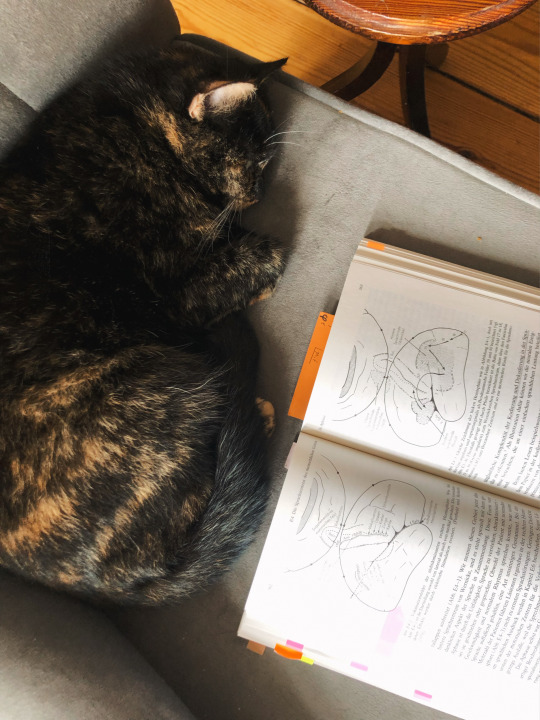
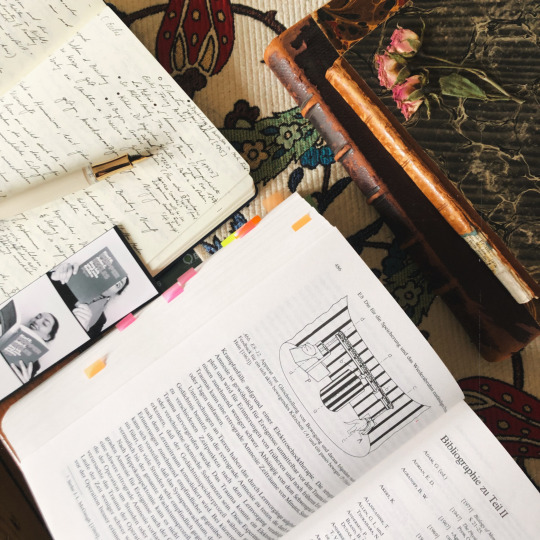

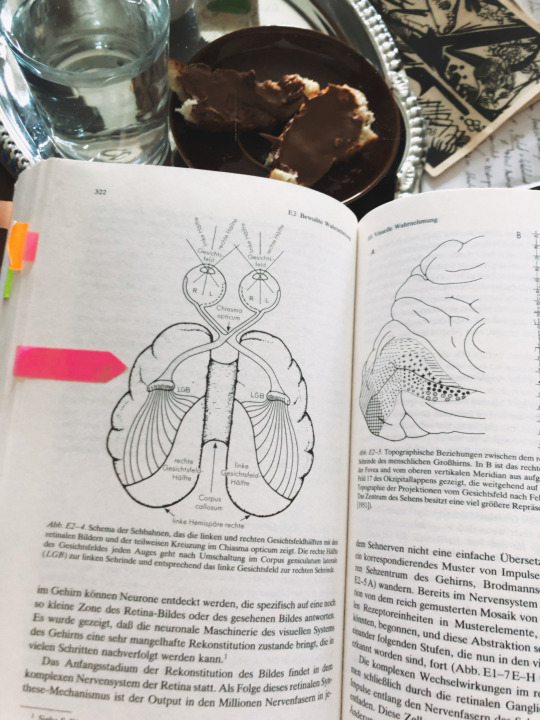

It was an exciting journey to read this illuminating work, which deals with the problem of relation with body and mind and the connection between the structures and processes in the brain and the mental, conscious actions and operations. The liasion of Eccles and Popper is an interdisciplinary research, connecting areas of expertise to underdraw the Theory of Psychophysical Interaction, which means body and mind are interrelationaly collaborated, but the organism is in a constant shaping through the physical world.

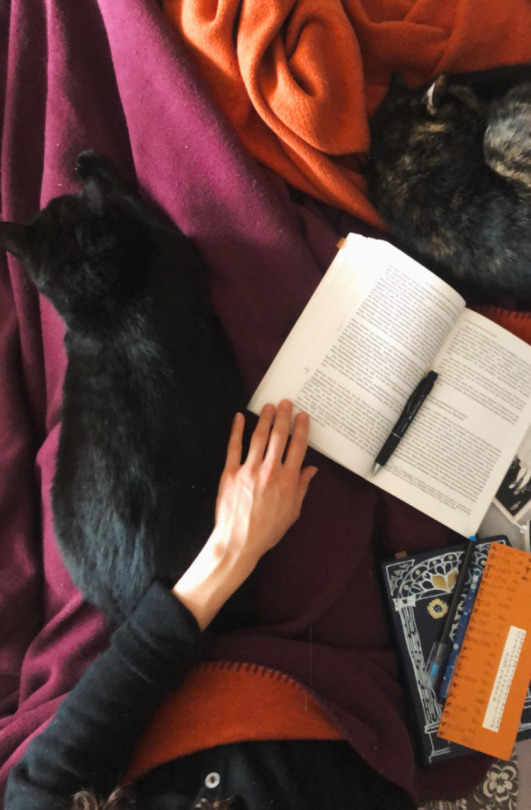
Examining different kind of classical epistimologies, to underdraw their Theory of Interactionism, it was traceable why the system of materialism (critisizing the causally completed physical world and the continuity of matter [World 1] according to Popper and Eccles, the material world is influencable as the living organisms have the ability to change the environment (= adoption of new biological and ecological meanings = influencing the pressure of selection = infinity of inherent possibilities and propensity), the system of determinism (often considered under a natural approach, theory of the world as a deliberately construct of God or Goddesses, famous thinkers of this systems are Leucippus and Democritus, formers of the atomism and mechanic materialism - Popper is sharply critisising the methods of science as they are the dominant conception of science till today, using the image of clouds-and-clocks to present the illusion of mechanistic theories [heavy systems evoke the impression that they are working like clocks, but in reality those huge organic molecules are open systems and the deduced physical law can just be observable, because enormous molecular mechanics are influencing each other + the principle of how science is classified is a misunderstanding, monistic systems are denying the dualistic and pluralistic understanding of things and entities !!! As an alternative solution the theory of possibilietes and probalistic preformationism are proclaimed]), the system of panpsychism (the theory of matter, defining that all things and entities have an inner sight, which is of mental and conscious quality, is denying the interaction of genetic and cultural evolution in accordance to the emergence feature of the self-consciousness- All living organisms are active "systems of perception" and not only passive sensually recipients - developments are active processes, the essential nature of the self is continuesly changing and depends on the physical type, the intellectual initiative and ingeniuty) and the system of empirism (where to begin? As mentioned before, we are the products of adaption, what we percieve with our senses is encrypted and every interpretation is the work of many polyvalent operations [as the parts of our brain are highly connected and it is still not possible to verify how recognizing-process is established in total, because eventhough the brain is more or less divided in areas of function, our genes, environment and thought patterns are permanently forming our realisation, therefore are senses are also products of constant adjustment] also it takes more for the self as the empirical memory, we are not only the total sum of our experiences, there are mechanism that guarantee the continuety of our self [Theory of Gene-Identity by Kurt Lewin and Locke's Principle of Individuation] and we have more methods to percieve knowledge rather than only using the senses, according to Hume, who is denying the existence of autonomic consciousness the cosmology is simplified and the ethics, the freedom of human-beings to chose their actions in accordance to humanistic aspiration, undermined) are untenable, because the mind and the self-conscious are coupled with the biologic individual organism and the nature of the self can most likely be captured with the Theory of Navigator and the essential requirement of space-and-time (as we need the orientation to establish our self, cf. Alzheimer-dementia and the fundamentaly difficutly of spatial orientation and loss of memory = Not able to reproduce the Idea of the Self = Unability to prepare for the future = independent life becomes hardly possible).
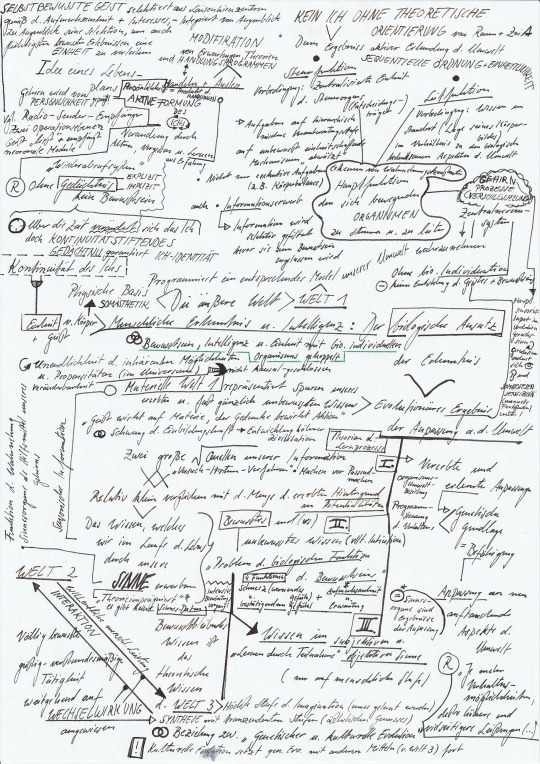
The senses are considered as tools for our brain to contrive functions of perception. The brain is programed to seize the most fitting model of our environment and the model is subject to steady review and interpretation (after Ernst Gombrich "making comes before matching" Theory of Visual Perception) of the conscience (Inner Enlighment in accordance to Feigl, compatible with this term is an assessment of Einstein:
"Without this inner enlighment, the whole universe would just be a pile of rubble."
The interdepence of thinking, intellect, reason, subjective experiences (....) are shoring up the circles of repetition of the brain (by means of synaptic plasticity), generating dynamic engram and the growing of neoronal synapses (= Theory of Learning = Ability for Remembrance). The Theory of Interactionism is emphasising the intensive brain acitivity, which is the necessary condition for physical and mental processes, that means both processes are influencing and causing.
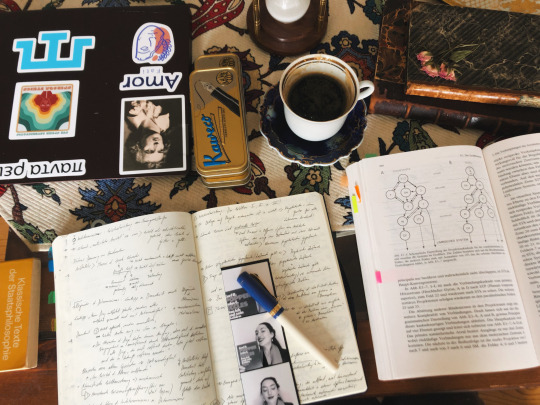
What is this Self exactly? Where can our I be located? In which context does cosmic-evolutionary stages bring the consciousness forth?
What seems trivial for the indolent, is a deep ocean of mysteries and wonders for the continous learner. Experiencing the self - is learning to become the self, as we all have the Idea of a Life-Plan (Rawl "Theorie der Gerechtigkeit"). We percieving the world and take action under the leadership of theory impregnated patterns. The personal task for the differentaited grades of conscience is to expand over our sure-thought-being and achieve goals that stand above instinctive longings and inclinations. Maybe the human-being is not the centre of the creation nor is the state of mind the product of the central nervous system (Central State Theory).
The universe is an open and creative system, just as the stars govern our conditions, we as dust particles have also the potentiality to influence in downward causations (never underestimate macroscopic structures).

It made a lot of fun to read this spectacular work and it animated me to draw more attention in actions and thinking-patterns, as taking the opportunity to crystallize sparkling diamonds to make my percieved world not only more worthy to live in, but to motivate other souls in lightening up the beauty of live, which we all carry in us, sometimes it is just hidding, because we used to negate the Good in conditions of uncertainity. If we are forced to live this earthly live, we should live it with love and inner peace, if everyone would train to become more and more self-sufficient, I believe, that there would be piece and harmony, because reason means a positive affirmation of life, the creation of a self, that is happy to improve itself, to evolve and take part for a better world, the product of domesticated and therefore enhanced awareness.
#literature#book cover#bookworm#book#epistemology#philosophy#theories of conscience#the self and I#The Self and Its Brain#brain power#Interactionism#philosophical theories#Karl Popper#John Eccles#interdisciplinary research#scientific theories#creation of reason#thinking structures#the impact of evolution on establishing the consciousness as a necessity#genes#chemical impact#neurophysiological influence#the sense behind remembrance#science#physiology of brain
1 note
·
View note
Text
Actor-Network Theory Meets Structuralism: A Powerful Framework for Analyzing Contemporary Social and Cultural Phenomena
Understanding the Dynamic Interplay Between Actors and Structures: Combining Latour and Galloway’s Thinking In class this week we’re discussing the brilliance of Bruno Latour; a French philosopher, sociologist, and anthropologist who is best known for his work on science, technology, and society. Latour’s philosophy is highly influential and has been widely discussed in academic circles. In this…
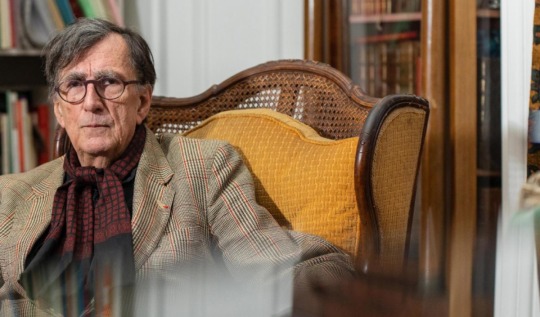
View On WordPress
#Actor-Network Theory#anthropology#Bruno Latour#Comprehensive Understanding#Contemporary World#Cultural Analysis#Cultural Phenomena#Digital Culture#Dynamic Interplay#Globalization#Interdisciplinary Research#Mark Galloway#media studies#Nuanced Analysis#pop culture#Power Structures#Social Analysis#Social Science#sociology#Structuralism
1 note
·
View note
Text
JUDGING CRITICAL THEORY, I
[Note: This posting is subject to further editing.]
An advocate of critical theory begins his/her presentation …
It is seldom the case that one can mark in time when a school of thought, say political school of thought, began. It probably comes closest to that ability when it comes to critical theory. In 1923 in the city of Frankfurt, Germany a collection of political/social/psychological thinkers got together and founded the Frankfurt Institute for Social Research. Later, its name was changed to simply the Frankfurt Institute.[1]
There are an ample number of prominent names involved with this founding. They include Max Horkheimer (who became its leader), Theodor Adorno, Walter Benjamin (a literary theorist), philosopher Herbert Marcuse, and psychologist Erich Fromm among others. This diverse grouping is telling in that critical theory turned out to be a product of a diverse disciplinary base.
While this group shared varying advocacy for Marxist thought, they individually and as a group held deep seated concerns with a good deal of its arguments. What follows gets into this variance, but first this short historical description points out that the Institute, due to the political environment in Germany (the rise of Hitler) during the late 1920s-early 1930s, moved to Geneva in 1933 and then onward to New York City in 1935.
While much has evolved in critical theory thought since those early days, the role of this blog will be to get at the essential arguments the Institute promoted initially. The blog also wishes to point out that many other writers with varying arguments have added to the mix and it will refer to some of them. This, of course, makes nailing down what exactly critical theory is an elusive project. So, for example, contributors emanated from traditions such as poststructuralism and postmodernism.
Along this line, from this view’s very beginnings, part of a general trend with Marxism in the West, starting in the 1930s, was that they, Marxist leaning academics, sought conceptual connections with non-Marxist thought. And their writings where not, as pure Marxist writings were, geared at proletarian audiences, but to fellow academics.
The trend was more specifically aimed at cultural and ideological issues and away from political economy. Just to remind readers, pure Marxist thought proposed a dialectical materialist view of history.[2] In addition, Marx, in his strict accounting of what that history reveals, are described forces that simply are/were in place and do not materialize due to normative considerations.
People, according to this purer form of Marxism, fulfill their roles in this history not because they good or evil, or right or wrong, but because they are human beings acting in accordance with their nature. Critical theorists reject this reasoning as they turn away from objectified research that opts for scientific protocols (more on this later).
Another factor of importance to this development was contextual and time specific to the 1930s. At that time, intellectual upheaval was being experienced. There was a hostile environment made of liberal capitalism (or what some have called the late robber baron era), Stalinism, and fascism.
Not swayed by arguments distinguishing these ideological traditions, early critical theorists were taken with these isms’ similar organizational, technological, cultural, and personality structural elements and, in turn, gave them, the critical theorists, theoretical focus, at least as compared with what pure Marxist writers were able to enjoy.
From the start, the aim among these writers was to change society. In such a mode, their attention to these other isms and how their advocates sought to rule not only the politics of their polities, but in how people lived their lives. One needed to understand that the more recent ideological developments – thought of today as mostly anti-democratic ideologies like fascism – were merely outgrowths of the older, liberal democratic tradition.
For example, fascism could not be studied or understood in terms of its own attributes but needed to be considered as a development spurred on by the subjugating character of the “parental” liberal democratic regimes. As Horkheimer is quoted, “He who does not wish to speak of capitalism should also be silent about fascism.”[3] This seemingly contradictory judgment needs clarifying, but it reveals the central contention critical theory makes regarding social realities.
In this mode of transcending traditional boundaries among the various academic disciplines, critical theory pushed to crossover from discipline to discipline. Early on, its advocates began analyzing subjugation from sociological and political concerns. This led to socio-cultural analysis with a dash of history in which antisemitism, for example, is perceived as an outgrowth of dominance initiated by the Enlightenment.
Or stated otherwise, fascism can be categorized as rebellion of suppressed antagonism initiated by de-legitimizing long held prejudices among the population against minority groups – especially if those minorities were perceived as enjoying material largesse. Perhaps Hitler could have adopted a “MAKE GERMANY GREAT AGAIN” slogan to capture this deep-seated antagonism that before Hitler might have been sustained at subconscious levels.
With that, this posting hints at where critical thought is aiming. More needs to be described and explained. Just to further remind readers, this blog warned them that with critical theory, one has a more involved set of ideas than the relatively simple rationales of either parochial federalism or natural rights views. But to report as to what this other view, critical theory, has to offer, this blog will go about doing so in short installments.
[1] This blogger wishes to express a word of gratitude to a source of information that has served to organize how this blogger presents its account of critical theory. It also is a source of information. See William Outhwaite, “Critical Theory,” in The Blackwell Encyclopedia of Political Thought, edited by David Miller, Janet Coleman, William Connolly, and Alan Ryan (Cambridge, MA: Blackwell Publishers, Ltd), 106-109.
[2] Readers who would benefit from a refresher review of Marxist thought, are invited to look up Posting #68. To gain access, readers can go online and look up this blog’s posting, “Posting 68: Some Influential Sources of Critical Political Thought,” Gravitas: The Blog Book, I (April 29, 2011), accessed March 15, 2023, https://docs.google.com/document/d/1zh3nrZVGAhQDu1hB_q5Uvp8J_7rdN57-FQ6ki2zALpE/edit, 240.
[3] Martin Jay, The Dialectical Imagination: A History of the Frankfurt School and the Institute of Social Research, 1923-1950 (Oakland, CA: University of California Press, 1973), 156.
#critical theory#interdisciplinary research#Frankfurt Institute#ideology#civics education#social studies
0 notes
Text
Definition, Meaning, Objectives and Significance of Research
Research is a systematic and scientific investigation that aims to discover new knowledge, validate existing knowledge, or solve problems. It involves a rigorous and structured approach to inquiry that is guided by specific objectives and research questions. Research can be conducted in various fields, including the natural sciences, social sciences, and humanities. It typically involves the…

View On WordPress
#Definition#Definitions of Research#Geography#Interdisciplinary Research#Meaning#Meaning of Research#Objectives and Significance of Research#Objectives of Research#Research Methodology#Significance of Research
0 notes
Text
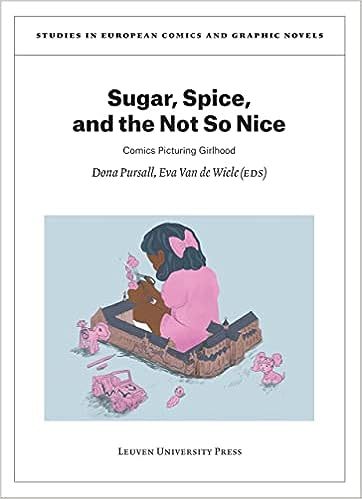
Here's another open access book on JSTOR y'all might find interesting:
Sugar, Spice, and the Not So Nice
This title offers a wide-ranging and geographically diverse book-length treatment of girlhood in comics. The various contributing authors and artists provide novel insights into established themes within comic studies, children's comics, graphic medicine, and comics by and about marginalized ethnic or cultural groups. It will appeal to students and scholars of childhood studies, comics scholars and creators, and those interested in addressing gender identity through the prism of comics.
#comic books#comics#graphic novels#interdisciplinary#gender#feminism#research#academic research#open access books#jstor
492 notes
·
View notes
Text
Mixups in an interdisciplinary team-
Bp being understood by the engineers as boiling point and the clinicians as blood pressure
Matrix being understood as a mathematical entity by the programmers and as a physical network of material by the biologists and chemists
Insult being understood by the engineers and scientists as a rude statement, but by clinicians as an injury
13 notes
·
View notes
Text
Manager asked if I knew any other languages and I wordlessly turned my monitor toward him where the screen was split between a page in Polish and a page in Russian lmao
#It's so funny how I don't get in trouble for reading at work#Basically because it's in foreign languages#Today I read more in depth about Stefania's dissertation#Basically Feliks Kopera proposed that Renaissance architecture came to Poland via Hungary#And Stefania did this fucking insane archeological-historical research project that proved it#And reconstructed a chain of artistic influence from Florence to Kraków 1499-1502#It's crazy how good her research was#And how interdisciplinary
14 notes
·
View notes
Text

Foundations in Flux: Rethinking Quantum Mechanics
At the forefront of modern scientific inquiry lies the intriguing convergence of philosophy and physics, particularly within the realm of quantum mechanics. A discourse with Professor Jacob Barandes, a scholar bridging fundamental physics and philosophical introspection, offers a nuanced exploration of this intersection.
Challenging the orthodox view, Professor Barandes posits wave functions as mathematical constructs generating probabilities, rather than physical entities inhabiting space. This paradigm shift underscores the notion that quantum mechanics' peculiarities may originate from its representational framework, rather than the intrinsic nature of physical systems. By demoting wave functions from ontological status to epistemological utility, we may uncover a more parsimonious explanation for quantum phenomena.
The introduction of C*-algebras as an alternative, mathematically equivalent formulation, prompts a reassessment of Hilbert spaces' foundational role. This approach, highlighting the potential redundancy of Hilbert spaces in certain quantum systems, invites a critical examination of quantum mechanics' axiomatic underpinnings. The implications are far-reaching, suggesting that a reevaluation of quantum theory's foundations may yield novel insights into the nature of reality.
Eugene Wigner's thought-provoking experiment serves as a catalyst for exploring the intricate dance between consciousness, wave function collapse, and the observer's role. By interrogating the fundamental status of wave functions and Hilbert spaces, Professor Barandes' framework may provide a novel lens through which to resolve the measurement problem, thereby illuminating the complex interplay between observation, reality, and the quantum realm.
Professor Barandes' "deflationary" approach, seeking to clarify quantum mechanics by positing a more intuitive, classical-like ontology, warrants careful consideration. By modeling quantum systems as probabilistic, classical entities governed by indivisible stochastic processes, this perspective potentially reconciles the theory's interpretational ambiguities. However, the success of this endeavor hinges on its capacity to generate empirically distinguishable predictions, thus necessitating rigorous experimental verification.
Jacob Barandes: There's No Wave Function? (Curt Jaimungal, Theories of Everything, November 2024)
youtube
Thursday, November 14, 2024
#philosophy of physics#quantum mechanics#interdisciplinary studies#science and philosophy#theoretical physics#academic research#scientific inquiry#philosophical perspectives on science#interview#ai assisted writing#machine art#Youtube
10 notes
·
View notes
Text
it’s so sad that I’m too stupid for maths. System theory is soooo fucking cool and I WILL apply it to my phd. I will create a fucking formula to represent my entire framework and it WILL be displayable in a model if it’s the last thing I do
#I am a scientist at heart but unfortunately the rest of my body is weakened by the humanities 😂😂😂😂😂#the curse of the interdisciplinary researcher#shut up Sam
4 notes
·
View notes
Note
What do you teach Pocket? I picture you teaching math.
Not math, social studies! Though I do have a tendency to end up math tutoring more than I expect lol. Writing too
#genuinely i can't keep up with the senior math class except their stats unit#but sometimes i can help the juniors with their math#I've taught econ before but i don't this year#currently I've got sections of research and interdisciplinary writing#a philosophy/humanities in the real world section#and a Post Highschool Path Prep section of juniors (yeah that's actually what the school calls it)#PPP is new for me but it's basically an ACT/SAT tutoring class the first semester and a career interest class second semester#the other classes are for seniors and my school requires they take one of them since they're writing focused and generally our kids could#use more writing practice#so yeah mostly social studies and writing these days#tho technically i have to be able to pass muster for every subject on the SAT and ACT to tutor those juniors#so a smidge of science and math too#I'm a little all over the place this year#pocket talks to people#anon
9 notes
·
View notes
Text
90% of my frustration is just that the ONE thing i know i am definitively interested in is just straight up not a thing in the us. at least not the way it is in other countries. not as it’s own seperate subfield that can be dedicatedly studied. and tryin to find something close would be so much explaining and stress and im already at my limit. i should just get a job and wait
#archaeological science i dreamt i held you in my arms#idiom does not work but fuck if#the GIS minor is the closest i could get undergrad and still be Meaningful (actually on the diploma) but#i’m genuinely annoyed 99% of the science in archaeology is people specialized in other fields coming into archae#rather than the other way around. both should be possible!!!!!!!!!!#but nah we hate funding and we hate any research that can’t be monetized#i want to learn about remote sensing and ancient dna and isotope analysis and and and. and we get like a single week dedicated to them in#each class. and if i DID study it i would need to IMMEDIATELH PICK ONE KIND OF ARCHAE SCIENCE#yo apply to. bc it’s not its own subfield here. what i would r do a for a general ‘scientific applicantjons in archaeology’ course#the only times i miss engineering. anthropology markets itself as interdisciplinary but cmon girl recognize that science and math is equally#part of the human experience. or really the opposite i need stem to get over itself and recognize it’s all intertwined#sry it’s. jay whines hours#text✨
5 notes
·
View notes
Text
13th International Conference on Interdisciplinary Research for Sustainable Development (IRSD) 2024





1st year student Ayush Dangwal from Dronacharya College of Engineering, Gurugram under the mentorship of Dr. Vaishali Dixit published the paper entitled "Power Up On the Go: Charge Your Phone While Walking “during 13th International Conference on Interdisciplinary Research for Sustainable Development (IRSD) 2024 held on 30th May, 2024 at Jamia Hamdard, New Delhi, Organized by I2OR India in association with Jamia Hamdard, New Delhi; Western Sydney University, Australia; Spoken Tutorial IIT Bombay & Green ThinkerZ, India.
#Education#Research#Conference#Session#IRSD#Sustainable#TopPrivateEngineeringCollegeInGurugram#BestEngineeringCollegeInDelhiNCR#Interdisciplinary
0 notes